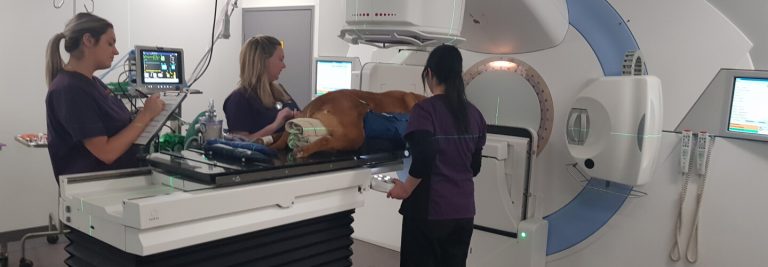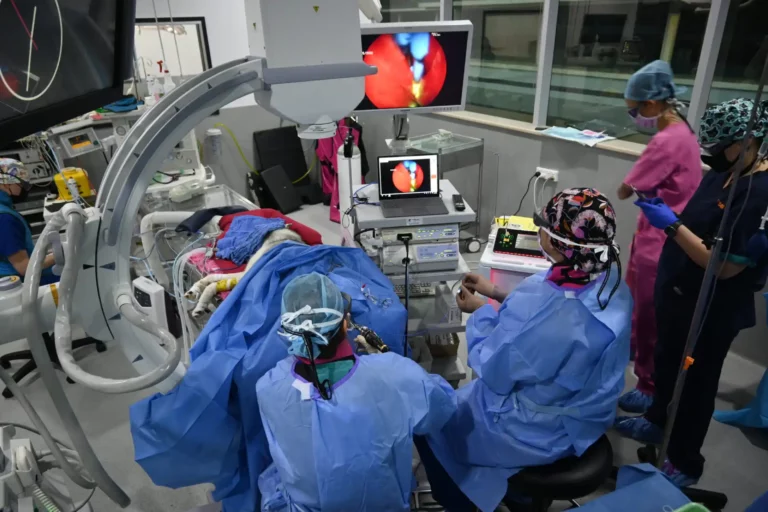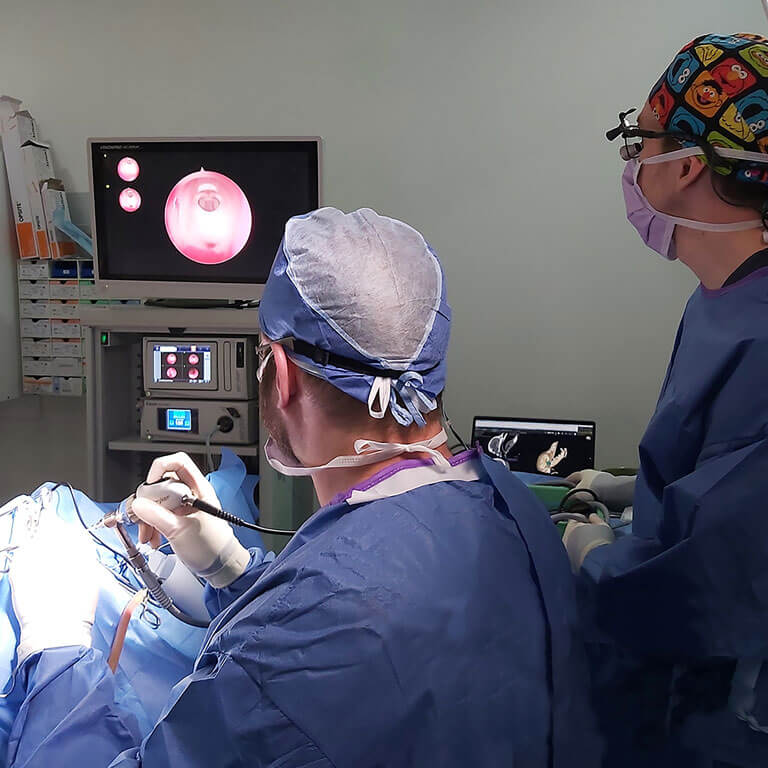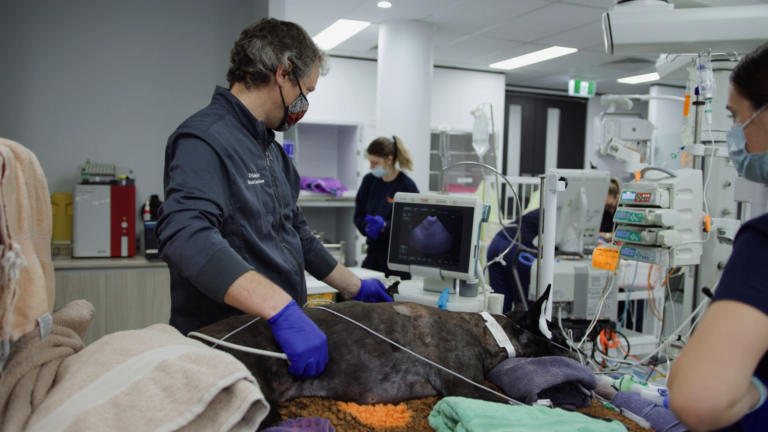Radioiodine treatment for cats
Did you know that an overactive thyroid gland (hyperthyroidism) is a serious problem prevalent in cats over 10 years of age? Common signs of hyperthyroidism include vomiting, an increased appetite, changes in behaviour and weight loss. It can also bring about serious secondary complications like heart disease. It’s a life-threatening condition, but thankfully it’s treatable in all cases and curable in the majority of cases.
There are several therapies for the management of hyperthyroidism but radioiodine treatment is considered the gold standard. Not only is it a highly effective treatment, but it has few, if any, side effects and is administered with a single oral capsule. It’s the same treatment used for humans suffering hyperthyroidism.
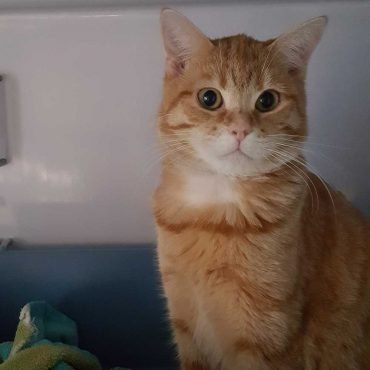
What Is Involved In The Radioiodine Treatment?
Pre-treatment consultations
A consultations for assessing cats are needed before treatment can start. Your cat and its medical history will be assessed at the time of the consultation to determine if it is a suitable candidate for radioiodine treatment and the radioactive iodine dose will be determined. It is unlikely that treatment will be administered on the same day as the consult, but your cat may be admitted to hospital on the same day. Please contact our Client Services team for more information around hospital admission processes.
Thyroid medication – Sydney
Cats need to stop any hyperthyroid medication and prescription diets (e.g. Hills y/d) for two weeks before the consult. They do not need to fast, and all other medications may be continued as normal. Please discuss with your vet whether it is safe to stop the hyperthyroid medication, in some cases this will be discussed with the vet at SASH in order to make the visit as safe as possible.
Thyroid medication – Adelaide
Cats need to stop any hyperthyroid medication and prescription diets (e.g. Hills y/d) before treatment. Our Medicine Specialist will provide specific recommendations during the consultation, or in discussion with your referring veterinarian beforehand if appropriate.
Giving the treatment (day 1)
The treatment is a capsule that is given orally. We aim to give the safest, lowest, effective dose to each cat.
Hospitalisation (days 2-7)
After treatment, patients are housed in our radioiodine ward and have their health and welfare monitored each day to ensure radioactive emissions have dropped to a suitable level. Due to strict safety regulations, you won’t be permitted to visit your cat for the duration of hospitalisation.
For your safety, cats are hospitalised for a minimum of 5 days and until their radiation levels are below a safe level. This usually takes between 5 and 7 days.
Follow up:
Your cat will require a follow-up appointment with our Internal Medicine team at 6 weeks, with subsequent visits to be discussed with you by the veterinarian. Typically, they will perform blood tests to check kidney function and thyroid hormone concentrations. These blood tests can be performed at your local veterinary clinic. If these results are emailed to SASH, our specialists will collaborate with your local veterinarian to provide any necessary follow up.
International Society of Feline Medicine
SASH hospitals offering radioiodine are accredited by the International Society of Feline Medicine as a Gold Standard Cat Friendly Clinic with the experience and staff expertise to handle even very anxious cats.
If you are worried that your cat may have hyperthyroidism, please see your local vet to have them checked. If your cat has hyperthyroidism, ask your vet about radioactive iodine treatment or contact our team by clicking the button below.
